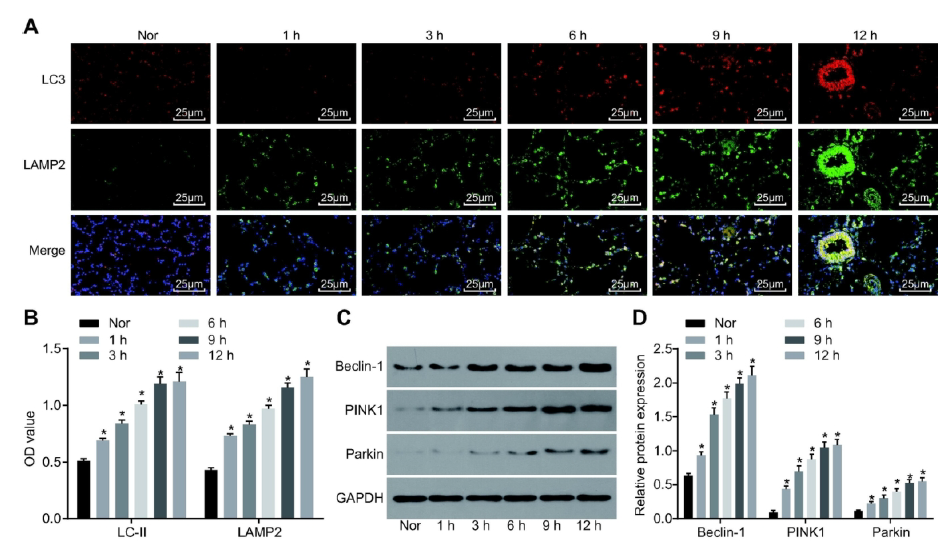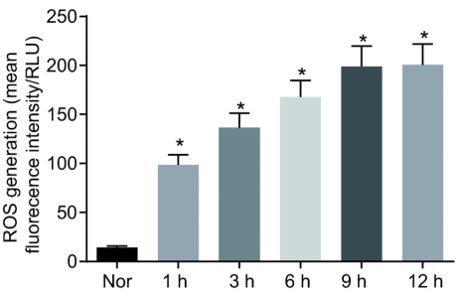Prolonged Cold Ischemia Increases Reactive Oxygen Species Activates Autophagy by Enhancing Glycolysis in the Graft Through the mTOR Signaling Pathway in Orthotopic Lung Transplantation of Rats
1Thoracic Surgery, Wuhan University, Renmin Hospital, Wuhan, China, 2Thoracic Surgery, The First Affiliated Hospital of Nanchang University, Nanchang, China, 3Department of Anesthesiology, The First Affiliated Hospital of Nanchang University, Nanchang, China
Meeting: 2020 American Transplant Congress
Abstract number: C-350
Keywords: Apoptosis, Ischemia, Lung transplantation, Oxidant stress
Session Information
Session Name: Poster Session C: Ischemia Reperfusion & Organ Rehabilitation
Session Type: Poster Session
Date: Saturday, May 30, 2020
Session Time: 3:15pm-4:00pm
 Presentation Time: 3:30pm-4:00pm
Presentation Time: 3:30pm-4:00pm
Location: Virtual
*Purpose: The aim of the present study is to investigate the mechanisms by which prolonged CI influences the autophagy in the graft lung, in which the mTOR signaling pathway was involved.
*Methods: Orthotopic lung transplantation models were induced in rats, whose lungs were preserved under CI conditions for varying durations. Autophagy activities, energy metabolism, and reactive oxygen species (ROS) level were determined at each time point. The perfusion treatments of inhibitor (3-Methyladenine [3-MA]) and activator (rapamycin) of autophagy and inhibitor of oxidative phosphorylation (oligomycin [OM]) were performed to verify the relationships among mTOR signaling pathway and autophagy in the cold I/R injury.
*Results: Autophagy was induced by CI preservation, which was peaked at 12 h after CI. Additionally, a coexistence of reduced oxidative phosphorylation and elevated ROS level was observed in rat lung tissues. Increased activities of key glycolytic enzymes, glucose consumption and lactic acid production followed with prolonged CI, which became stable after a 9 h period of CI. Of importance, the perfusion treatment of 3-MA or OM decreased ROS level and Beclin-1, PINK1, Parkin, and AMPK expression, but increased mTOR expression; while the perfusion treatment of rapamycin induced a reverse tendency.
*Conclusions: These findings demonstrate that activated autophagy during prolonged CI preservation leads to poor oxidative phosphorylation, robust glycolysis, and ROS level rise in the graft lung via the mTOR signaling pathway.
To cite this abstract in AMA style:
Lin H, Dai S, Liu W, Lin X, Yu B, Chen S, Liu S, Tang J. Prolonged Cold Ischemia Increases Reactive Oxygen Species Activates Autophagy by Enhancing Glycolysis in the Graft Through the mTOR Signaling Pathway in Orthotopic Lung Transplantation of Rats [abstract]. Am J Transplant. 2020; 20 (suppl 3). https://atcmeetingabstracts.com/abstract/prolonged-cold-ischemia-increases-reactive-oxygen-species-activates-autophagy-by-enhancing-glycolysis-in-the-graft-through-the-mtor-signaling-pathway-in-orthotopic-lung-transplantation-of-rats/. Accessed February 23, 2026.« Back to 2020 American Transplant Congress



